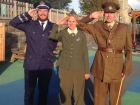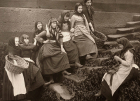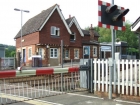Living Memory
Studying events within living memory can help young children to gain an early understanding of chronology and that history is made all of the time. It also helps them to understand the world and their place within it. Through this Key Stage 1 unit of study, children are introduced to historical concepts, vocabulary and representations through exploring the ways in which life has changed over the time of their parents, grandparents and great-grandparents. This can be used to reveal aspects of national events or changes where possible. Popular areas for this topic include family, toys, holidays, the climate, technology, school, among many others. In this section you will find articles and guidance to help you plan exciting and creative ways to introduce your children to the study of history.
-

What can you do with an old postcard?
ArticleClick to view -

What do children think about the the royal family and the coronation of King Charles III?
ArticleClick to view -

What was it like to live here in the past? Resourcing the local study
ArticleClick to view -

What’s in your pocket, Peg?
ArticleClick to view -

Women and space: reaching for the stars
ArticleClick to view -

Women in parliament since 1918
ArticleClick to view -

Women’s History Month: Female Voices
ArticleClick to view -

World War I: widening relevance in the modern world
ArticleClick to view -

World War II evacuation project - A living history experience
ArticleClick to view -

World War II: breathing life into a local history enquiry
ArticleClick to view -

‘Come all ye fisher lassies’
ArticleClick to view -

‘Not again!’ - an additional viewpoint on using railways
ArticleClick to view -

‘So why did they go into hiding?’ Anne Frank in her historical and social context
ArticleClick to view

